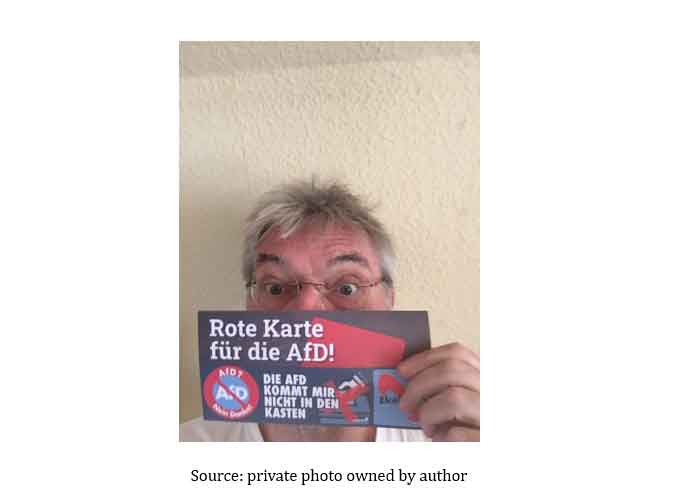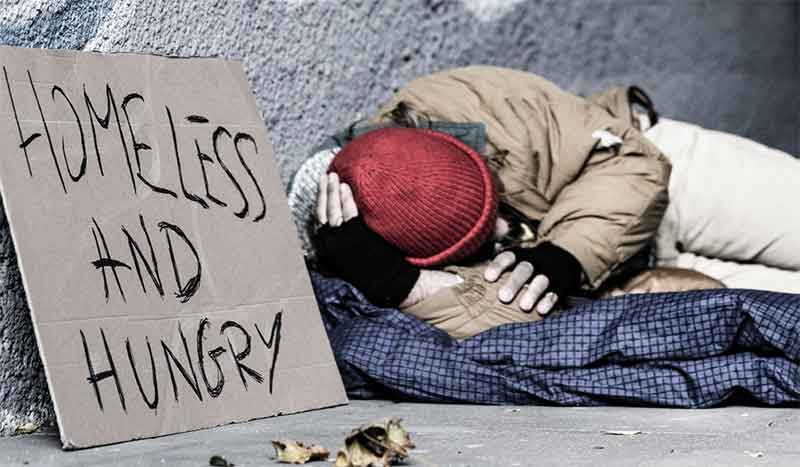
Europe’s recent election resulted in some stunning winners and some bitter losers. Despite Europe’s right’s substantial gains, the progressives won two more seats. Meanwhile, Europe’s social-democrats and progressives lost just three seats ending up with 136 – which is not an all too serious hit.
However, those fancying the ideology of neo-liberalism, capitalism’s neo-liberalists, lost a whopping 22 seats. And with Europe’s environmentalists losing a really earth-shattering 19 seats (literally), this will only push the most imperative issue of the 21st century – global warming – further into the margins. Very easily, this is the most damaging outcome for all Europeans.
Yet, in the EU’s most powerful state – Germany – the clear winner is Germany’s neofascistic AfD. Things are not much better in next-door France where Marine Le Pen triumphed. Many people had hoped that the AfD would not perform well in the European elections after the many scandals (to name a few):
- spying for China and Russia,
- the Potsdam secret meeting where a new Aryan race was planned,
- the AfD’s EU-Führer Maximilian Krah relativized the crimes of the SS, and
- Björn Höcke being found guilty of using a Nazi slogan.
With its supporters securely locked into filter bubbles and echo chambers, all the scandals did not harm the AfD to any great extent. The far-right party got 15.9% – Germany-wide.
Still worse, the right-wing extremists AfD became the strongest political force in the former East-Germany dividing Germany into a democratic west and a neofascistic east.
Being an ideological stooge of the Führer Björn Höcke – right-winger René Aust – will head the AfD squad to the European Parliament. Meanwhile, the AfD gave tarnished and former top-dog Maximilian Krah time to – as it is deceptively called – clarify his recent pro-SS comments.
At the same time, local mini-Führer Petr Bystron – currently being investigated by public prosecutors over dubious money payments from Russia – remains part of the AfD’s EU delegation.
Inside the EU parliament, the AfD used to be a part of the neofascist political group – euphemistically called “Identity and Democracy” (ID). However, a few weeks ago, the ID-group excluded the AfD. The factor speaking against the re-entry of the AfD into the far-right groups is France.
Marine Le Pen wants to win the parliamentary elections in France. Maximilian Krah and the AfD have too many scandals such as – Krah’s pro-SS commentary, the Germanic racism of the AfD and Aryan fantasies of remigration – do not fit with Le Pen’s schmoozing with the centre.
Meanwhile, Germany’s social-democratic SPD seem to be on a suicide mission. During the election campaign, the SPD had consistently managed to hide its top candidate Katarina Barley.
Instead, it relied on Olaf Scholz as a driving force. This was a rather absurd plan because in the past years, Scholz has not been noticed in European policy making.
Worse, he has been putting the Franco-German friendship at risk when, for example, grinning at Emmanuel Macron’s pro-EU proposals. Much of this may have led to the miserable result for the SPD.
Even in the area of “social policy” and despite Schröder (SPD) creating a substantial under-class cheap labour in Germany, only a minority of 39% saw the SPD as a party striving for social justice.
In Sweden, a country once known for social justice, the far-right Sweden Democrats were about to become the second or the third strongest political force. Yet, for the first time ever, the party received a setback in an election. It received 13.2% – down by 2.1%.
The Sweden Democrats were overtaken by those it defames as “the enemy” – Greens becoming the third strongest force with 13.8% – up 2.3%. Even better, the biggest increase in votes came to the left Vänsterpartiet – up by 4.1%. It got 10.9% – the best result since 2004.
Meanwhile, the small but governing parties – Christian Democrats and Liberals – could be glad to have made it back to the EU Parliament at all. Given Sweden’s long tradition of social-democratic government, it is no surprise that Sweden’s social-democratic party continues to be the strongest political force.
Many have taken comfort that Sweden’s social-democrats and progressives emerged strengthened after the EU election.
In close-by Finland, the progressive Left Alliance Party achieved a sensational 10% increase, ending up with 17.3%. Ahead was the conservative Samlingsparti with only 24.8%. The far–right True Finns are the true losers in this election with only 7.6%.
In Denmark, the ruling Social Democrats had the worst election result in 120 years with only 15.6% (down by 5.9%). It only got three seats in the EU parliament. Denmark is one of the countries that have been granted one more seat in the EU since this year.
As for the debacle of the social democrats, its electorate has switched to progressive alternatives. Perhaps this occurred out of disappointment with the current coalition with Denmark’s conservatives.
The progressive-environmentalist Socialistisk Folkeparti received an increase of 4.2% to get 17.4% – the strongest party in Denmark.
The liberal-conservative Venstre remains one of the biggest Danish losers with a decline of 8.8%. Worse, the right-wing Liberal Alliance increased its support by almost 5%.
At the same time in Poland, Donald Tusk’s liberal-conservative Civic Platform (PO) won the election. Meanwhile, the far-right Law and Justice Party (PiS) – that dominated Poland for ten years – moved into second place.
Poland’s centre-moderate PO got 37.1% and the right-wing populist PiS got 36.2%. With just 8%, Poland’s Christian conservatives failed to do well. The progressive New Left accounted for almost 7%.
Worse, the far-right Konfederacja (Confederation) received 12%. In other words, Poland’s pro-western, pro-democracy, and pro-EU policy was, overall, supported.
In neighbouring 1.8 million people-strong Latvia, just 34% voted. This surprised many considering the war in Ukraine and the country’s immediate proximity to Russia. With 25.1%, the liberal-conservative party became the strongest party losing about 1%.
Worse, the right-wing populist National Alliance Visu Latvijai! (All for Latvia!) increased its support by 6% ending up with 22.1%. On the upside, Latvia’s Greens have grown strongly.
At the other end of Europe – at the Iberian Peninsula – Spain’s progressives seem to be in a recovery mode. The European elections were seen as a plebiscite for the social democrats under Pedro Sanchez or for the conservatives under Alberto Nuñez Feijóo.
Although Feijóo’s right-wing populist Popular Party (PP) won with 34.2%, Sanchez’s PSOE is just 4% behind.
Simultaneously, Spain’s progressive alternative Podemos was able to save itself from demise with measly 3.3%. Quite literally, Spain’s socialists closed ranks. Nevertheless, a tensed political situation remains in Spain.
This might have harmed the progressives’ overall result. The left-wing alternative Sumar fell short of expectations with just 4.6%.
Meanwhile, the success of the far-right PP is due to the complete disappearance of the right-wing liberal Ciudadanos which got kicked out of the European Parliament (EP).
Overall, Spain’s political landscape has been shifting significantly to the right. Worse, the right-wing extremist Vox doubled its people in the EP from three to six – receiving 9.6%.
In Austria, the right-wing neofascist FPÖ came in first place with 25.5%. It is followed by the conservative ÖVP with 24.7%. In other words, the petty bourgeoisie/neofascist bloc got just about 50%.
The social-democratic SPÖ got 23.3%, the environmentalist Greens: 10.9% and the neoliberal Neos received 10.1%. All in all, Austria has moved further to the right.
In neighbouring Hungary, Orbán’s right-wing challenger Péter Magyar with his conservative Respect and Freedom Party (Tisza) received 29.7%. Orbán’s neofascist Fidesz achieved its worst result in an EU election with 44.6%. He announced an end to corruption and seeks to “reform”!
Hungary’s health and education systems. Yet, the real battle in Hungary will be fought in the National Council election in spring 2026.
Despite all this, Europe is still in an election shock. In the weeks before the EU ballot, there were numerous warnings and rallies drawing attention to the impending shift to the right.
Regrettably, the EU election result is not surprising. Still, it is most devastating as right-wing extremists gained. Even conservative Ursula von der Leyen from Germany is campaigning against the right-wing extremists. However, her recent approach was to cooperate with, for example, Italy’s strongest force, the fascist Fratelli d’Italia. It casts doubt on her credibility and the conservatives, in general.
After all, it was a German conservative – Franz von Papen – who got us Adolf Hitler. Historically, conservatives made Nazism possible.
Today, neofascist forces such as Le Pen in France and Meloni in Italy are using their newly won seats to expand the power of neofascism in Europe. In post-Nazi Germany, the neofascist AfD is also gearing up to grab power – a Machtergreifung 2.0.
After all, democratic parties like the social-democrats, the neo-liberals and various others have created the perfect conditions for a far-right takeover with their often all too accommodating strategy towards pro-capitalist “solutions” to global warming and, worse, towards migration.
Their constant megaphoning of far-right issues plays directly into the hands of Europe’s right-wing extremists.
Still, the project of a democratic Europe did not fail. This is despite the observable lack of democracy in the EU.
There are moderates, progressives, environmentalists, and the other activists who want to contribute to the democratisation of the EU’s political apparatus. The choice is not – as capitalism wants it – between neo-liberalism and fascism.
Subscribe to Our Newsletter
Get the latest CounterCurrents updates delivered straight to your inbox.
Instead, some progressive forces have also won in the recent EP elections. The European Parliament (EP) stands for democracy and for diversity. What unites all of them is a commitment to Europe’s democratic project. It is not right-wing nihilism, naysayers, racism, nationalism, dehumanisation, and destruction.
The historically high turnout is an indication that EU citizens still believe in the democratic power of Europe. They have not forgotten that the EU is a success story of a common currency, a common space (Schengen), and a common “European” idea: peace, human rights, freedom, democracy, free speech, and the celebration of diversity.
Born on the foothills of Castle Frankenstein, Thomas Klikauer (PhD) is the author of a 985 publications, including a book on “The AfD”.















































